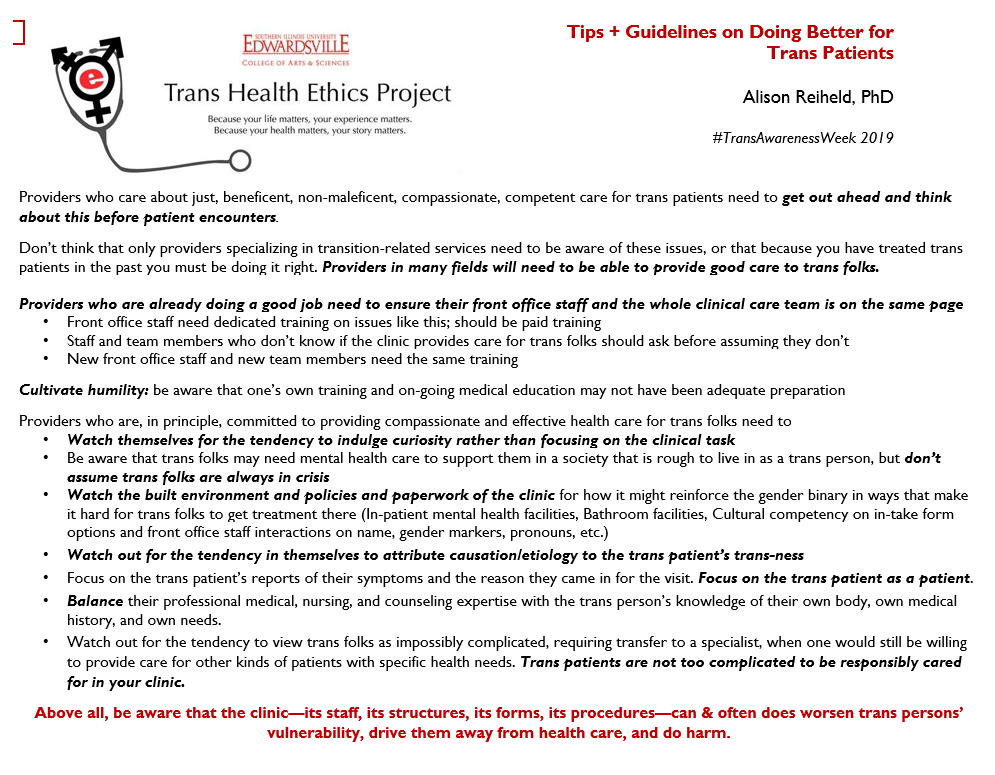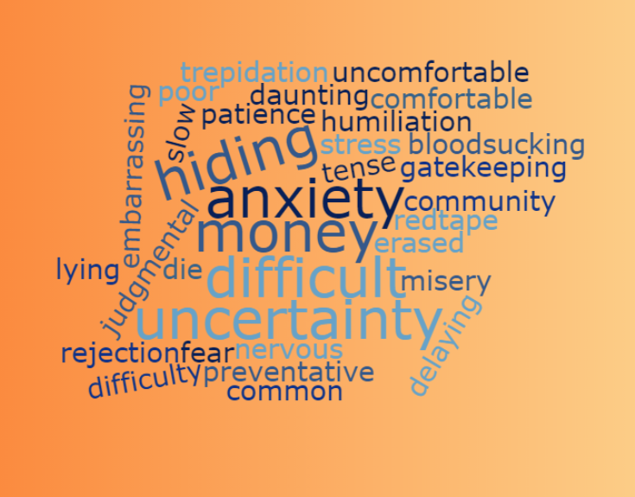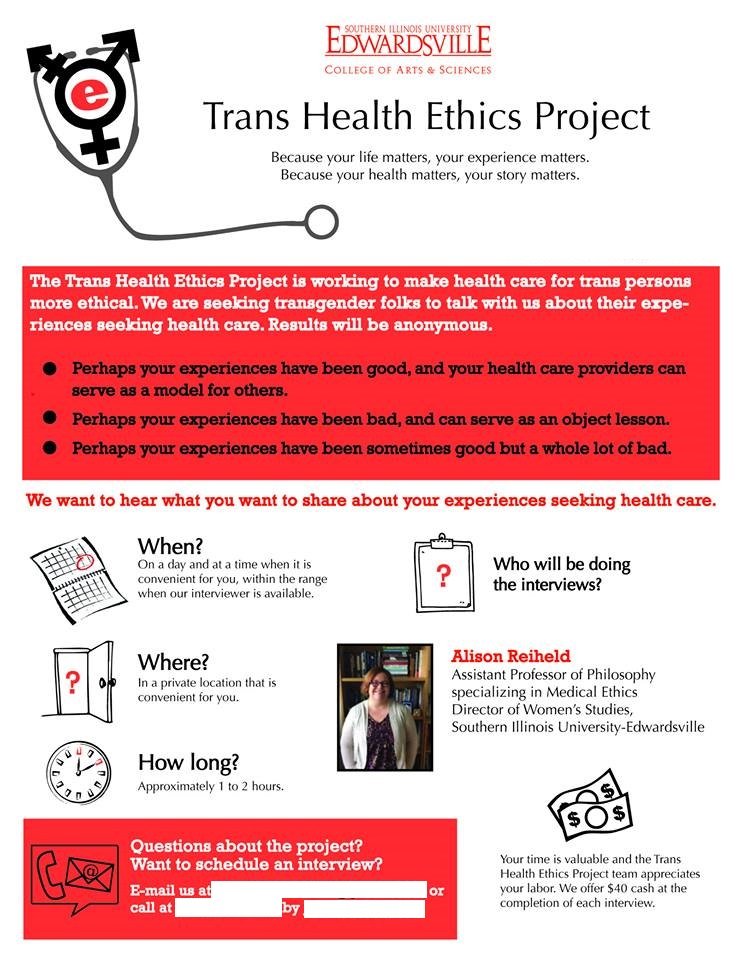
Philosopher, Bioethicist.
"Struggling to be brief, I become obscure." - Horace
Pronouns: she/her
How to get URL link on X (Twitter) App


https://twitter.com/AlisonReiheld/status/1196574900133089280Let's start w/Simon, whose negative experiences we saw yesterday, including being misgendered and outed by front office staff, especially when he sought Gyn care. I asked all participants to say what would be better--or in fact was better sometimes--than negative experiences. 2/n
https://twitter.com/AlisonReiheld/status/1196263467788984320Paul Farmer, public health advocate and a founder of Partners in Health (@PIH) says, “stories illustrate some of the mechanisms through which large-scale social forces crystallize into the sharp, hard surfaces of individual suffering.” #narrativematters #bioethics #meded

 "Do I have to?
"Do I have to?
https://twitter.com/AlisonReiheld/status/1195044520905175040I used a standardized array of interview questions across 15 hours of interviews with trans folks regarding their experiences seeking health care in the United States, both POSITIVE AND NEGATIVE, to give providers #narrative examples/guidelines on what not to do, AND what to do.
